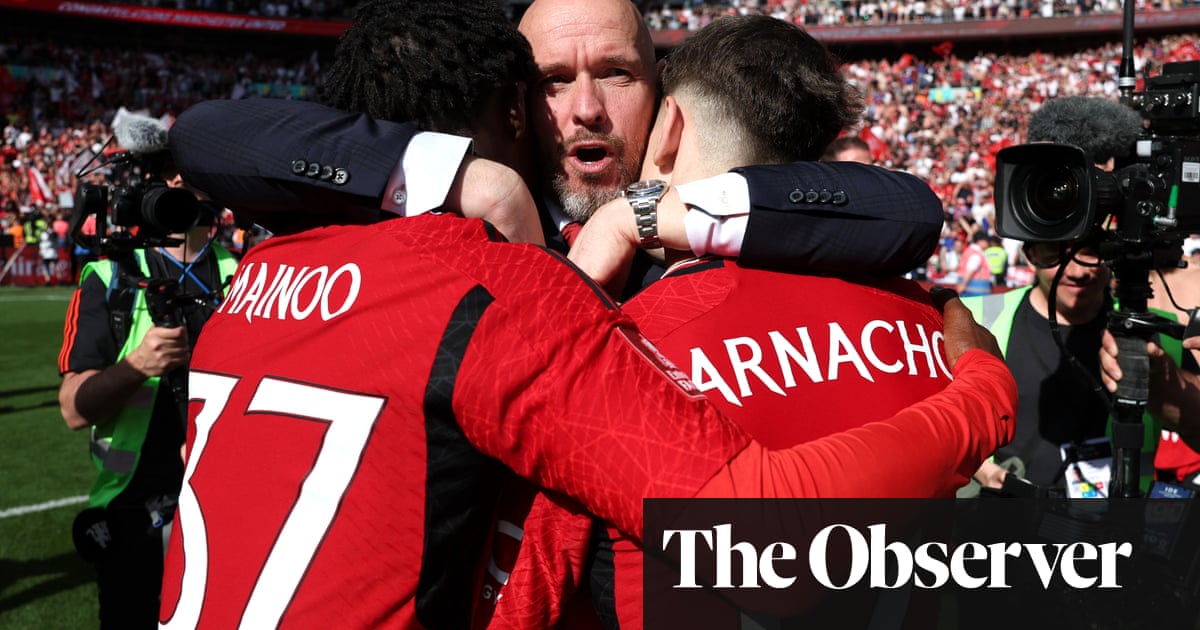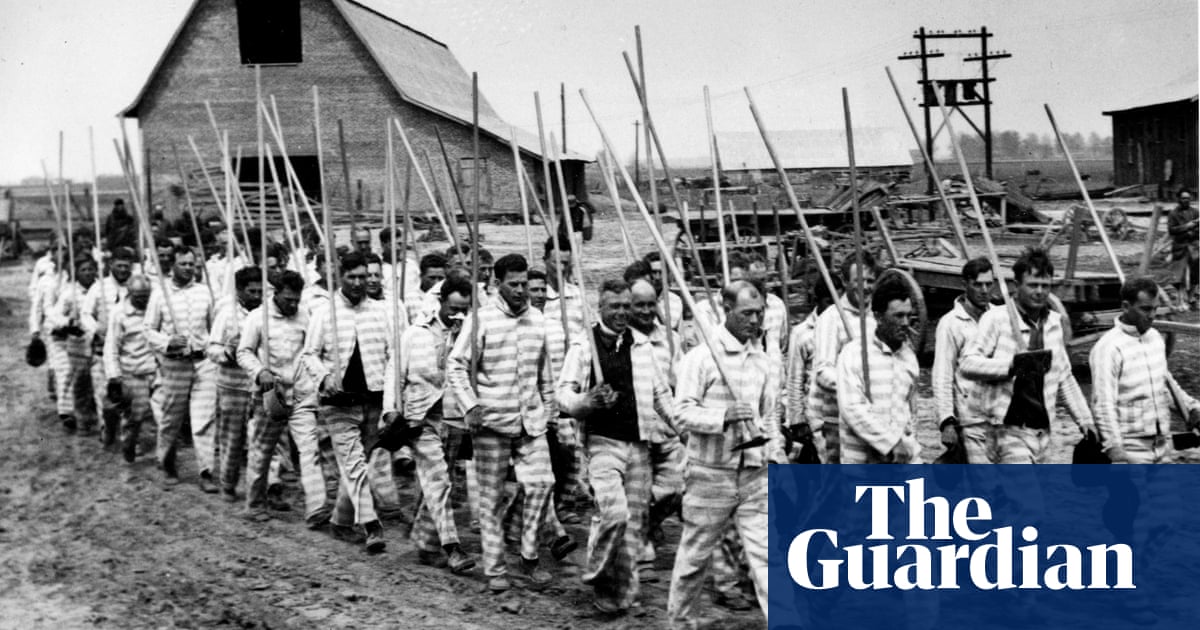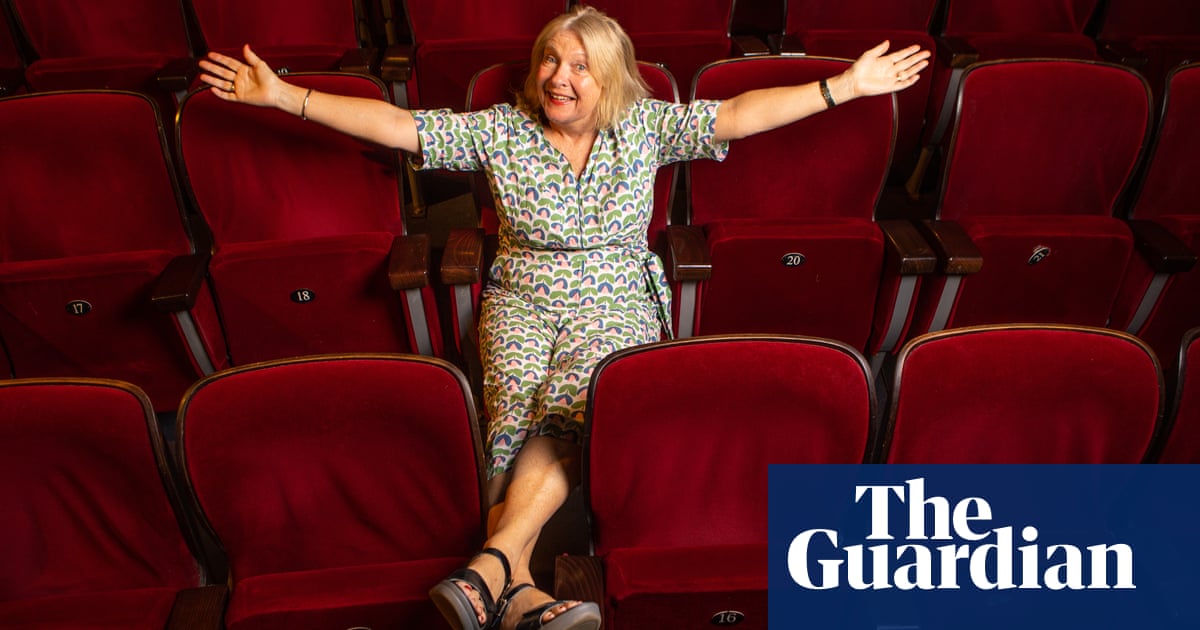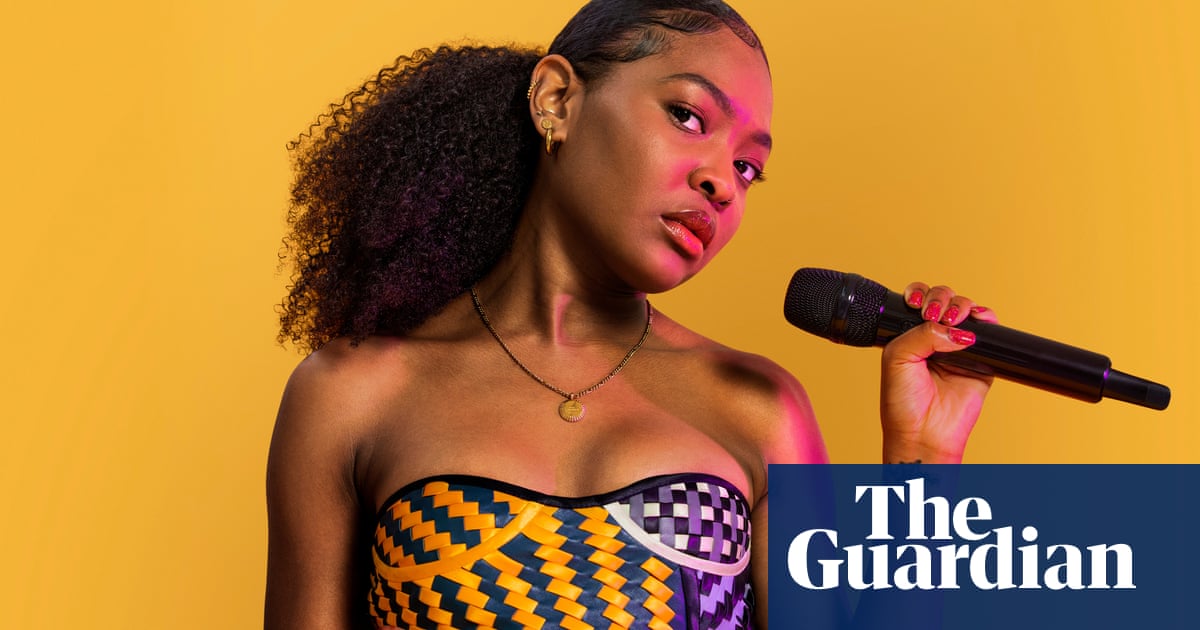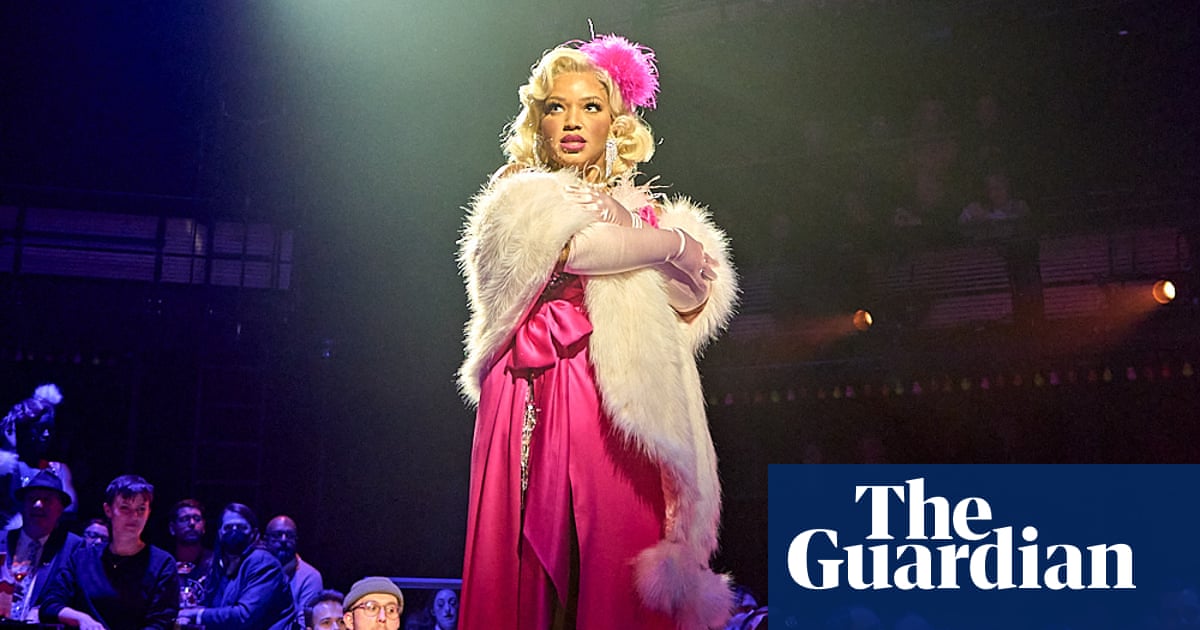
As Marisha Wallace ushers me into her dressing room at London’s Bridge theatre, where she’s currently dazzling in Guys & Dolls, it feels like an old friend is pulling me into her bedroom for a gossip. Wallace’s dressing table overflows with makeup, cards and clutter. The American actor’s mirror is adorned with Polaroids, including one where she beams proudly while standing next to Hugh Jackman (just one of many celebrities to visit the show). Our conversation is punctuated with easy laughter, frequent offers of tea (“I’m very British now”) and an unusual level of openness.
Wallace is coming to the end of a near year-long run as the nightclub singer Adelaide, perpetually engaged to the hopelessly charming gambler Nathan Detroit (Daniel Mays). It has been a phenomenal run for the entire company, but it’s Wallace – in a role that is often merely comical but here becomes effortlessly soulful – who has emerged as the star. Along with her nuanced performance there’s her knockout singing voice: thunderously powerful but also shot through with a vulnerability that pulls the audience close. It’s a spectacular combination that has resulted (so far) in Evening Standard and WhatsOnStage award nominations, an appearance in the Stage’s Top 100 list, and an ongoing deluge of critical praise and public adoration.
At 38, Wallace is being hailed as musical theatre’s next big thing. It has been a long time coming. As she recounts her childhood growing up on a hog farm in Goldsboro, a small town in North Carolina, her subtle southern drawl grows stronger. Her early years revolved around religion and, perhaps even more importantly, music. Wallace’s dad helped to build the local church. Her grandma was the pastor, her mum the church secretary and choir director, and her dad a musician. From as young as five years old, Wallace sang.
Those early years spent singing in the local church, as well as at funerals all around town, turned out to be excellent training. “It’s totally a type of theatre,” she says. “You have a paying audience [the congregation giving to the church donation plate] and you’re being asked to elicit an emotional response with your voice. So when I learned to sing musical theatre, I already knew how to do it: I knew how to make people cry with my voice.”
When she was 16, Wallace went to her first musical: a Broadway tour of Disney’s Aida. A black woman was playing Aida, and Wallace’s teacher, Mrs Grantham, turned to her and firmly said: “That’s what you should do.” Mrs Grantham encouraged Wallace to audition for the music programme at East Carolina University but, to everyone’s surprise, Wallace failed the audition. In one of endless sliding doors moments in her life (“I swear something is guiding me”), a professor tapped Wallace on the shoulder just as she was leaving and told her: “I think you have something special. We just have to figure out what’s wrong with your voice.”
Wallace quickly discovered she had a cyst on her vocal cords. Having sung her heart out for years – and screamed like crazy as a cheerleader – she had wrecked her voice. The only option was a risky surgical procedure to remove the cyst. On the night before surgery, all 150 members of Wallace’s church laid their hands on her and prayed. The next day, she woke to see her mother crying at her bedside. Wallace assumed the worst but the reality turned out to be far stranger. The cyst was gone. What does she think happened? “I’m not religious but I am spiritual. I think things happen in our lives that change the course of how it’s going to go. Because if that hadn’t happened to me, I wouldn’t be here.”
After graduation came endless gigs at dinner theatres, theme parks and cruises – anywhere that would pay Wallace to sing. Eventually she moved to New York, determined to make it on Broadway. She landed a part in The Book of Mormon through an open audition. The director, Casey Nicholaw, vowed to feature Wallace in his subsequent shows and he kept his word: first casting her in Aladdin and, after that, the spectacularly silly sounding Broadway show, Something Rotten!, in which Wallace played an all-singing, all-dancing omelette, Eggie White.
Wallace’s big break finally came when a bout of pneumonia forced Amber Riley to pull out of the West End run of Dreamgirls and Wallace was called in as a replacement. It was only meant to be a three-week run, but as Wallace prepared to leave for London she packed away her entire apartment and said her goodbyes (“I knew it was going to be for ever”). On her first appearance in Dreamgirls, the singer received a standing ovation: “It felt like everything I’d been through was for that moment in time.”
Two-years on, Dreamgirls was followed by a barnstorming appearance in Daniel Fish’s daring production of Oklahoma! at the Young Vic. Wallace transformed the role of the frisky Ado Annie, with her famous song I Cain’t Say No, into a woman with agency and purpose. Eyes flashing, Wallace talks of her determination to make every one of her roles – all too often dismissed as throwaway comic turns – relevant and authentic.
“I feel like women’s roles in musical theatre can be very wimpy and very sexist,” she says. “Everything is happening to them and it’s always disguised behind the ‘dumb blonde’ label. But those dumb blondes are some of the smartest people I’ve ever met! If you play these roles with a little more knowing, it really makes a difference.”
In New York, Wallace was always being told to pull back. But in London she feels free to express herself. The result has been two standout performances – first as Ado Annie and now as Adelaide – in which classic roles, and a clutch of iconic songs, feel as if they have been written anew. One of Wallace’s favourite numbers is Adelaide’s showboating song Take Back Your Mink, which sees Wallace strip down to a tiny sparkly pink dress, and repositions Adelaide as a woman in control of her life and career. “I love that song because we created it,” Wallace says. “It was never that kind of number. It was a cute number. But now it’s a powerful number. I see women’s faces when my booty comes out. My ass! My thighs! I’m not the stereotypical type of girl who would wear that kind of outfit. Everyone feels seen.”
The director Nicholas Hytner’s promenade version of Guys & Dolls places a large chunk of the audience on stage, mingling with the actors as they sing. It’s a special feeling for Wallace: to catch sight of these “young black girls” staring up at her, their eyes widened in joy: “A musical should make you feel like you’re flying. Like you could do anything.”
Wallace is beginning to choke up: “If I can make somebody feel like that, then I’ve done my job. Even if they don’t want to do theatre, they can believe in something bigger than themselves. That’s the coolest part of doing this: for people to see it and suddenly feel like they can dream bigger.”




